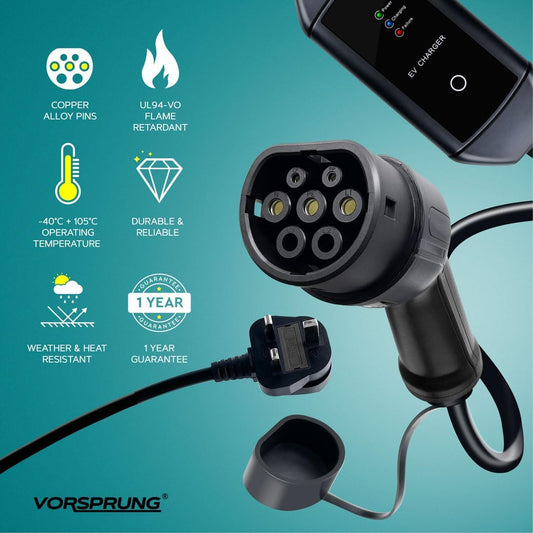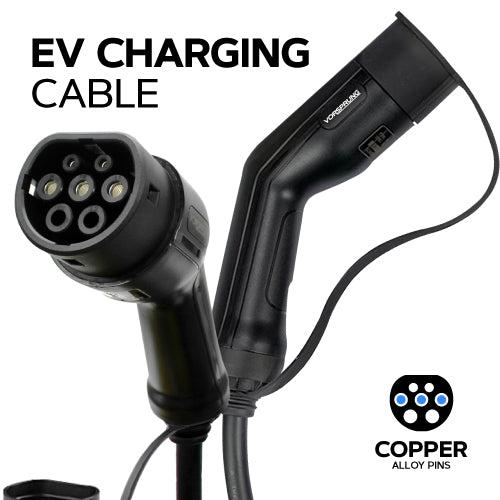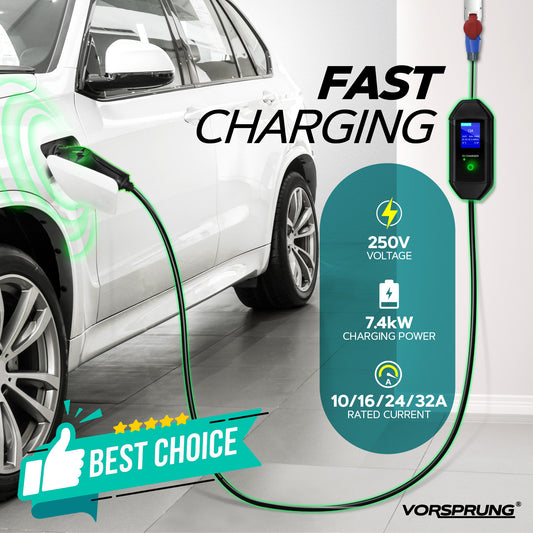
How to Install a Home Electric Vehicle Charger
Share
Electric cars are becoming more and more popular, and with that, the need for home electric vehicle chargers is growing. If you're thinking about installing a home charger, there are a few things you need to know.
What Type of Charger Do You Need?
There are two main types of home electric vehicle chargers: slow chargers and fast chargers. Slow chargers typically have a power output of 3 kW, which means that it can take up to 12 hours to fully charge an electric car. Fast chargers have a power output of 7 kW to 22 kW, which means that they can fully charge an electric car in 4 to 6 hours.
The type of charger you need will depend on your car's battery capacity and your charging needs. If you have a small car with a small battery, a slow charger may be sufficient. However, if you have a larger car with a larger battery, or if you need to charge your car quickly, you'll need a fast charger.
Where Should You Install the Charger?
The best place to install a home electric vehicle charger is in a garage or carport. This will protect the charger from the elements and make it easy to access. If you don't have a garage or carport, you can install the charger in your driveway. However, you'll need to make sure that the charger is protected from the elements and that it has a dedicated parking space.
How to Install the Charger
If you're comfortable with DIY projects, you can install a home electric vehicle charger yourself. However, if you're not comfortable with DIY projects, or if you're not sure where to start, you should hire a qualified electrician to install the charger for you.
The installation process will vary depending on the type of charger you choose. However, the basic steps involved in installing a home electric vehicle charger are as follows:
- Choose a location for the charger.
- Run a dedicated circuit to the charger.
- Install the charger according to the manufacturer's instructions.
- Test the charger to make sure it's working properly.
Cost of Installing a Home Electric Vehicle Charger
The cost of installing a home electric vehicle charger will vary depending on the type of charger you choose, the location of the charger, and the cost of labor in your area. However, you can expect to pay anywhere from $500 to $2,000 for the installation of a home electric vehicle charger.
Conclusion
Installing a home electric vehicle charger is a relatively easy process, and it can save you a lot of money on charging costs. If you're thinking about installing a home charger, be sure to do your research and choose the right charger for your needs.
Here are some additional tips for installing a home electric vehicle charger:
- Make sure the charger is compatible with your car.
- Get a permit from your local utility company if required.
- Install the charger in a well-ventilated area.
- Keep the charger clean and free of debris.
By following these tips, you can ensure that your home electric vehicle charger is installed correctly and safely.








